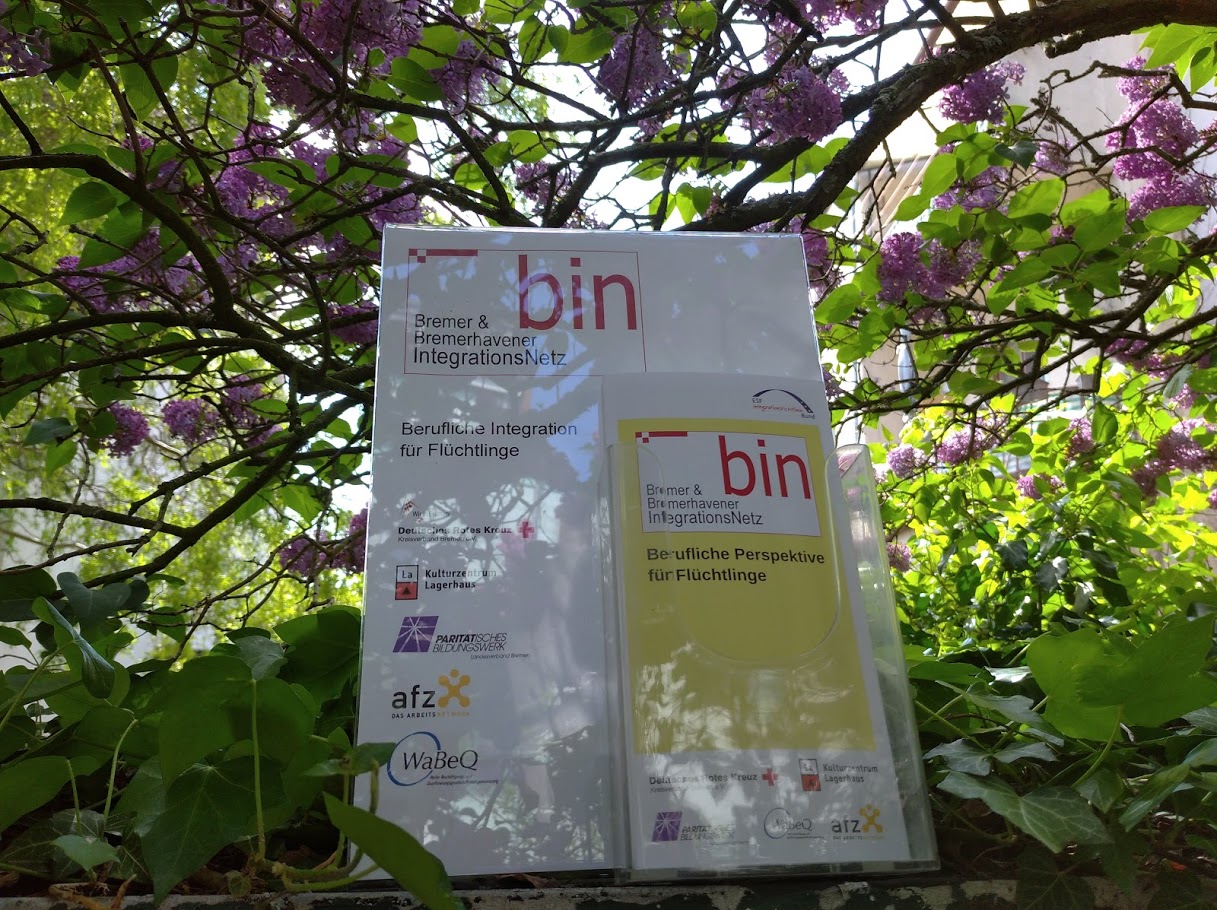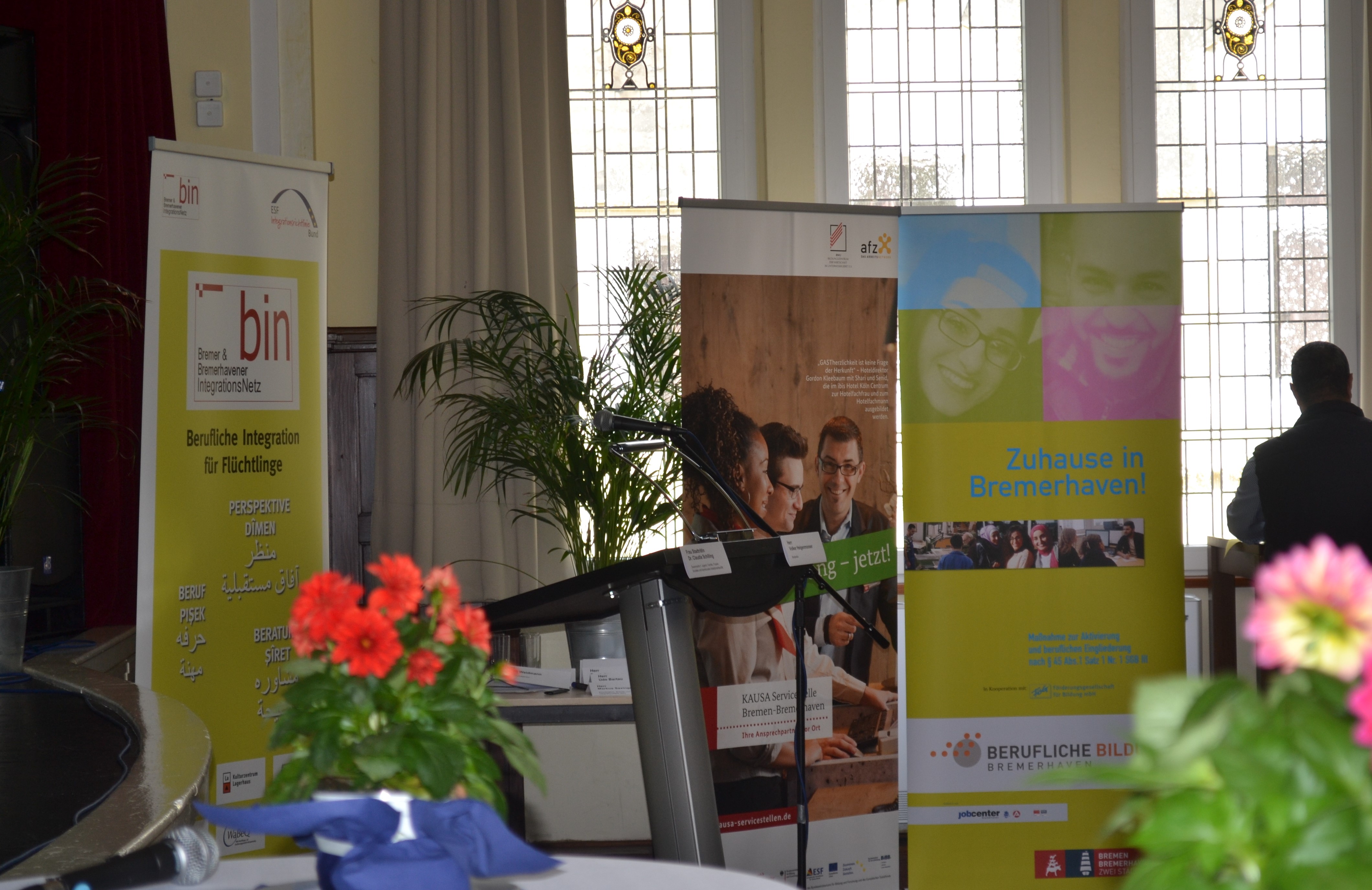Holistic Support to migrants and asylum seekers integration in the labour market
After long and stressful migratory routes marked by uncertain asylum procedures, prolonged separation from family members and in some cases, periods of detention, administrative barriers can delay migrants’ inclusion in the labour market, representing a further challenge for their integration. Moreover, in most EU Member States, delays in access to labour market vary from one country to another. This often creates a gap in employment history which can have a negative impact on people’s employability. In addition, administrative burdens such as the need for work permits or employment licences can deter many employers from hiring asylum seekers and refugees. Finally, issues around the recognition of qualifications and language skills can pose major obstacles, diminishing access to employment for many asylum seekers since the possibility to follow language courses is limited.
To help asylum seekers and refugees overcome administrative barriers and navigate the labour market, the German Red Cross in Bremen and its partners have founded the “Bremer and Bremerhavener Integration Network” (BIN) – “Bremer und Bremerhavener IntegrationsNetz”. Funded by the European Social Fund Plus (ESF+) and the German Ministry for Employment and Social Affairs, BIN aims to facilitate the integration of refugees and asylum seekers in Bremen and Bremerhaven through vocational training and support in accessing employment, including by promoting the employment of migrants and refugees among potential employers. Another overarching objective of BIN is to learn from employers’ existing good practices and to develop and implement strategies to improve the integration of migrants and refugees into employment and training in the German federal state of Bremen, thus contributing to meeting the regional demand for skilled workers.

The network also offers advice on matters related to residence, labour and social issues, as well as on available language learning support. “Counselling refugees is challenged by a special complexity resulting from a difficult legal position combined with fragmented administrations and social and educational needs. This is why each case has to be treated individually,” says Markus Saxinger, BIN project Coordinator, Red Cross (Bremen local branch).
At the beginning of their journey towards employment, each participant completes an analysis of their competences and potential, assesses their career wishes and goals, and reviews their qualifications and professional experience. Throughout the programme, special attention is paid to individual coaching, career orientation and training for job applications. People are then assisted in finding a job, apprenticeship or internship, in partnership with organisations across Bremen. Participants planning to enrol at university are also supported with their application.
Within the BIN project, a number of additional services are provided. For example, the German Red Cross in Bremen is involved in network coordination. Staff and volunteers cooperate with potential employers, job centres and the employment agency in Bremen to offer advisory services about the practicalities of employing young migrants and refugees. Twice a year, the German Red Cross calls its BIN project strategic partners at communal, regional and federal administrations, as well as the chamber of commerce, the chamber of crafts and organisations of civil society for a committee meeting to discuss current challenges to refugees labour market integration and to find common solutions.

Because of this committee and further networking, another BIN sub-project, the ‘Bremer Integration Qualification’ (BIQ) was formed to support young migrants and refugees between the ages of 18 and 26, regardless of their residence status or progress within their asylum procedure. The project reaches about 200 young migrants per year and aims to help them improve their German language skills up to a B1 level, as well as to transition into a profession. Young migrants and refugees participate in intensive German classes four days a week, and additional courses in mathematics and career orientation one day a week. Teaching is complemented with a four-week internship in a company of their choice to get to know the specific professions that they are interested in. Additionally, based on needs and preferences, the programme offers literacy courses, sports and cultural activities and events.
The BIN project’s interconnectedness and success in engaging asylum seekers, refugees and potential employers has led relevant actors in Bremen to pursue additional funding under the ESF+ programme, with a new BIN project cycle set to start in October 2022.
Basic information
Activity name
Bremer & Bremerhavener Integration Network (Bremer und Bremerhavener Integrationsnetz)
Country
Bremen, Germany
Duration
October 2008 – October 2026 (in preparation)
Partners
German Red Cross (local branch Bremen), Kulturzentrum Lagerhaus, Paritätisches Bildungswerk (Landesverband Bremen), WaBeQ, AFZ
URL
https://www.bin-bremen.de/home

